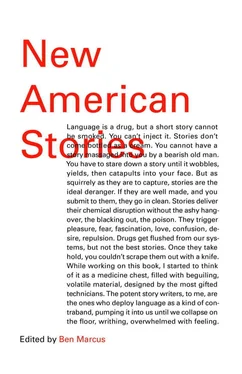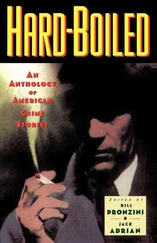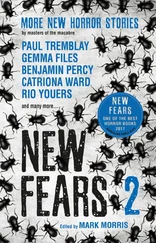People laughed.
“Hey,” I hissed at Roberto. “That word’s not called for!”
Some of the parade-goers began splashing the protesters with blue water from the fountain, and soon the police arrived to separate everyone and escort the protesters to a special section at the other end of the park. The band struck up the national anthem. We put our hands over our hearts as veterans from previous wars began marching past, starting with World War II. There were only a few of these, and they ambled by slowly, looking confused and displaced, their uniforms baggy like diapers and draped with medals that glinted in the sun. Their children and grandchildren and maybe great-grandchildren helped them along and did the waving for them. People applauded, but the applause seemed to disorient the veterans. “Thank you,” Roberto called, “thank you for all you’ve done!”
As the wars progressed, the soldiers got younger, until we arrived at the youngest, the new recruits. By the time they appeared, I was exhausted from the heat and the clapping. I felt like I was being immersed in boiling water, and I was sure I had a terrible burn on the back of my neck. Still, I mustered the energy and pounded my hands harder than I had up to that point. This was bon voyage for the new recruits — they were marching from the parade straight to the train depot. “Last stop, the peninsula,” the emcee said. The crowd went wild. Roberto and I clapped harder yet. The soldiers came marching down in lines of twenty. Line after line. Ten minutes of lines. A mass of bodies larger than the crowd watching. They were decked out in the latest gear, everything streamlined and advanced: goggles and helmets, tool belts and boots, lights and antennas. They resembled astronauts with automatic weapons.
“To the moon!” I yelled. It had a nice ring to it.
“To the moon!” Roberto yelled.
And then I saw a familiar face. I couldn’t place the face, but I knew that I knew it. I knew it vaguely. The man was tall and frail, and the helmet looked too large for his head, more like a bonnet than a helmet, and with each step it bobbled and appeared in danger of slipping off. He fumbled with the strap, trying to tighten it and keep pace at the same time. Sweat poured down his face as if he’d just climbed out of a swimming pool. He seemed on the verge of collapse.
“I know that man,” I said.
“Thank you,” Roberto shouted.
The man reached into one of the many pockets on his jacket and withdrew a handkerchief. In one clean motion, he brought the handkerchief down across his dripping face. Then he turned and looked at me. The man I didn’t know.
“Hey,” I called. I smiled and waved.
He squinted. He seemed to be looking at me and then beyond me. The attitude of haughty disdain that he’d had that day at the bus stop had been replaced by a look of fatigue and befuddlement. I wondered if Quincy and Troy were with him, and I scrutinized the lines of marching soldiers. An instant later, the man I didn’t know had passed, and all I could see was his back, with his enormous pack weighed down by the essentials and an antenna sticking out.
I cried out after him, “I told you there wasn’t going to be a draft!”
—
In August something strange happened: it got cold. In one day, it plummeted from a record high of 107 to 95 degrees. This felt like relief. But after that the temperature kept dropping, until by the middle of the month it was fifty-three. In the beginning of the cold snap, everyone was happy, and then everyone was scared. Everyone was saying that if it was fifty degrees in August, what was it going to be in December.
Things got busy at work and I didn’t see Roberto for a while. We made plans and I canceled plans, and then we made plans again. He said he really wanted to watch that funny buddy road movie we never got to watch. He said he had my money. All of it. Or almost all of it. I wanted to tell him not to worry about it, that it didn’t matter, but it did matter, and I rationalized that paying me back would help teach him something about responsible American citizenship.
We finally arranged to meet on Saturday morning at ten o’clock.
The night before, I was lying in bed, watching the news about some bad things that had happened in Maple Tree Heights, when it was interrupted by a special report: the war had begun. The invasion was being broadcast live, lots of lights and flashes and little bursts of smoke from afar. Rat-a-tat-tat. Instead of troops landing on the peninsula, as we had been led to believe, they were coming down over the mountains. The peninsula strategy had all been a deft misdirection to fool the enemy. Ten thousand feet high, the mountains were. Up one side and down the other, a hundred thousand troops on the move. It was going to take them a week to make the crossing. What was it like, I wondered, to reach the summit?
I stayed up late, flipping back and forth between channels. The channels all showed the same footage, and all the experts agreed: “Resistance is futile.”
“Ladies and gentlemen,” the newscaster said, “blink and you might miss this war.”
In the morning my car was broken again, it wouldn’t start, and I had to walk to Roberto’s. It was freezing. It might as well have been winter. The sun was hidden and the wind blew hard, whipping the flags around. People drove past me and honked in unity.
When I got to Roberto’s apartment, I was numb. My nose was running and I had to pee. The gate to the cobbler’s was up, but the shop looked unattended. I pounded my hands together and stomped my feet to get the blood going. Five minutes into waiting, I began to suspect that Roberto was about to come around the corner and “surprise” me with another box of electronics. Five minutes after that, I took my chances and shouted up to the window. “Robbie!”
Immediately the cobbler came out. He looked at me and sucked in the sides of his cheeks.
“The doorbell doesn’t seem to be working,” I said sarcastically.
He shook his head. “No talk here,” he said. His eyes were tense and bloodshot, and he puffed hard on his cigarette. Smoke billowed out from all the orifices of his face. Beneath his apron, his stomach protruded, firm and round. “Come in store,” he said. “No good talk out here.”
I followed him inside. He put his cigarette in the ashtray and sat down at his machine as if he were about to get back to work. I leaned on the counter like a customer.
“Yesterday,” he said as he rubbed his dirty hands over his face. “Yesterday they come.” He wasn’t looking at me as he spoke. Somehow his dirty hands hadn’t made his face dirty.
“Who come?” I said.
“Oh, no,” he said. He put his black palms up in defense. “I don’t ask question.”
“Who come?” I demanded.
He looked at me with trepidation. Slowly, stumblingly, full of error, he told me that yesterday they come for Roberto, yesterday, middle of day, four car, four car, no warning, all pull up same time, right outside, happen fast, take him way, take him. What I can do? I can do nothing. I am one man. They have law. Hurt me as much as hurt him.
He hunched his shoulders and he looked aggrieved. He was sorry, he said. “I pray for him now.”
I believed him.
“He was nice boy,” he said. “Hard worker. Hurt me too. Oh, boy.” He ran his dirty fingers through his thick hair.
Then some people came in with their shoes, and he stood up to help them. His pack of cigarettes was on the counter, and I took one and stuck it in my mouth and lit it. He didn’t notice. He didn’t care. My boldness surprised me.
I took the long way home. I walked fast and hard. I smoked the cigarette, and the second I exhaled, the cold wind took the smoke. People drove past honking. I came down the hill and over the bridge. At the train tracks I stopped and tried to get my breath. I was wheezing. A small dot appeared way down the line. After a while it became a train. I could hear the rumble. When it drew closer, I could see that it was loaded with long tubular objects, missiles no doubt, twenty feet long, thirty feet, covered with canvas and strapped down with canvas belts. As the train approached, I saw the engineer hanging his head and arm out the window, and I motioned for him to pull the horn as I would have back when I was a kid. A moment later I heard the blast, braaaaaammmmm ; it was louder than I had remembered, longer too, and then the train passed under the bridge as it headed out west or down south.
Читать дальше










![Женя Джентбаев - neo futura [stories]](/books/692472/zhenya-dzhentbaev-neo-futura-stories-thumb.webp)

